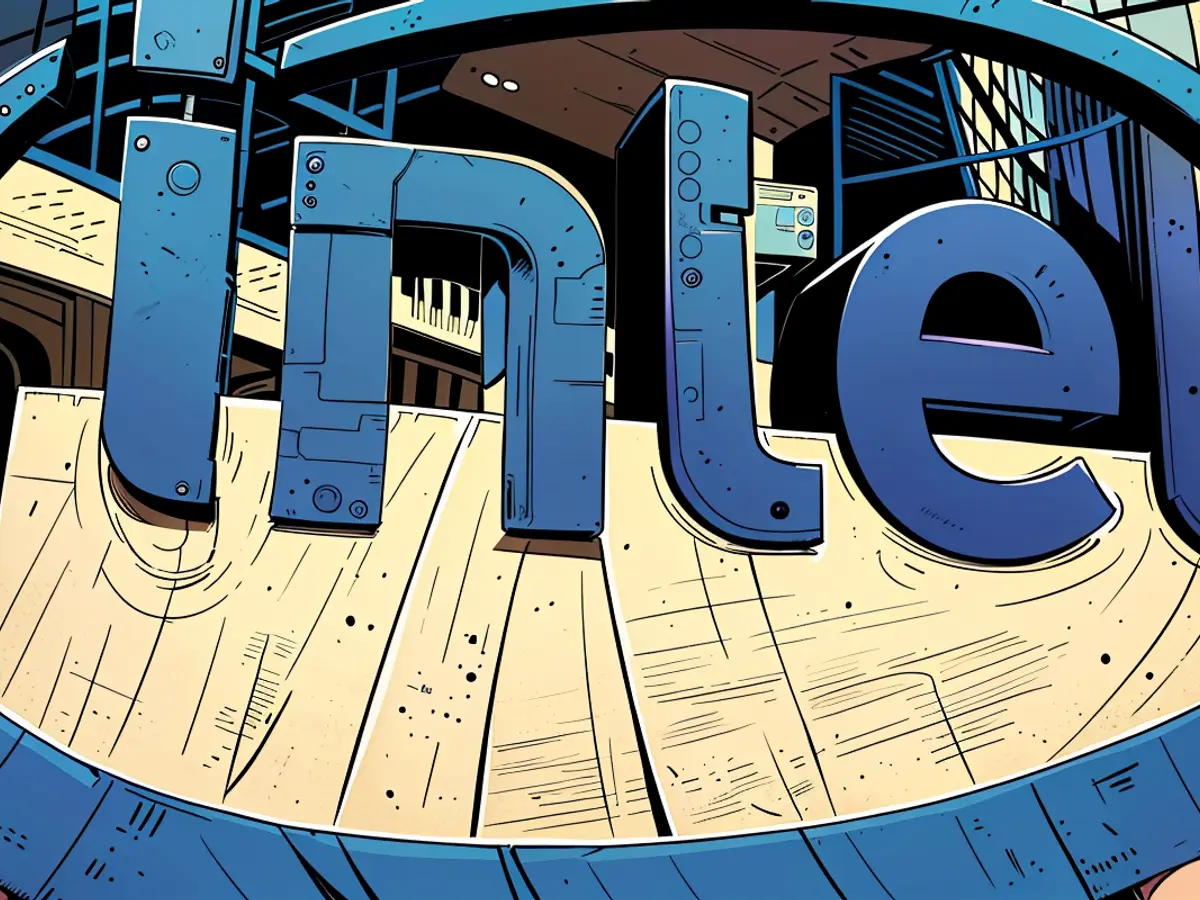- Intel contemplates severe measures in response to suffered setbacks.
Intel, a notable player in the semiconductor industry, is reportedly exploring extreme solutions, like splitting up or halting certain factory projects, as per a Bloomberg report. A range of alternatives are expected to be presented to the board in September, the report indicated, citing reliable sources, although it was mentioned that these deliberations are at an initial stage and no swift actions are forthcoming.
One proposed strategy, according to Bloomberg, involves Intel splitting off its chip manufacturing sector, which has already been segregated into a separate wing. However, it seems more probable that the company will pause some of its expansion endeavors. Intel's CEO, Pat Gelsinger, is also contemplating the idea of generating income as a manufacturer for other chip creators. Intel declined to provide comments on Bloomberg's request for details.
Projected further losses
Intel is under strain. The company incurred a billion-dollar loss in the recent quarter, and market analysts anticipate further deficits. Gelsinger is implementing measures and announced the layoff of approximately 15,000 employees in early August. This equates to about 15% of the workforce. By the end of next year, he aims to save more than $10 billion.
In Germany, Intel is planning a factory in Magdeburg, valued at around 30 billion euros. However, the company is yet to secure necessary approvals, including a billion-dollar subsidy. The initial groundbreaking was slated for the year-end, with production commencing in 2027. Intel has already secured financial firms as backers for two costly factories in the US and Ireland.
"Expenses too high, profits too low."
Gelsinger expressed concern in an email to employees in August. He stated that Intel's expense structure is "not competitive," among other things. "Our expenses are too high, our profits are too low." He also mentioned adjustments to investment plans in accordance with anticipated market growth, without providing additional details. Simultaneously, it was announced that Intel had suspended investments in France and Italy.
The following measures, such as the potential pause of certain factory projects and the consideration of Intel becoming a manufacturer for other chip creators, are reportedly being explored by the tech giant in response to its financial struggles. As the company explores various alternatives, Intel's CEO, Pat Gelsinger, has highlighted the need to reduce costs, stating that the company's expenses are currently "not competitive."








